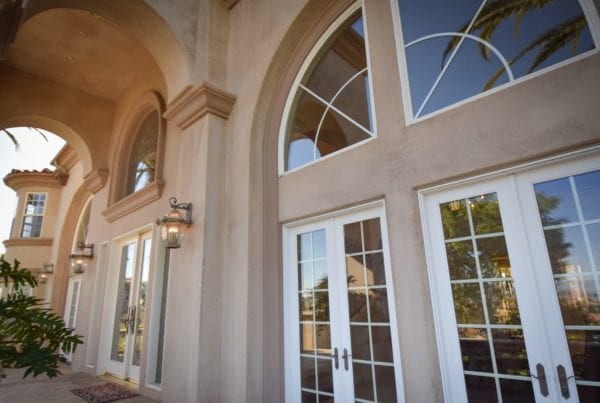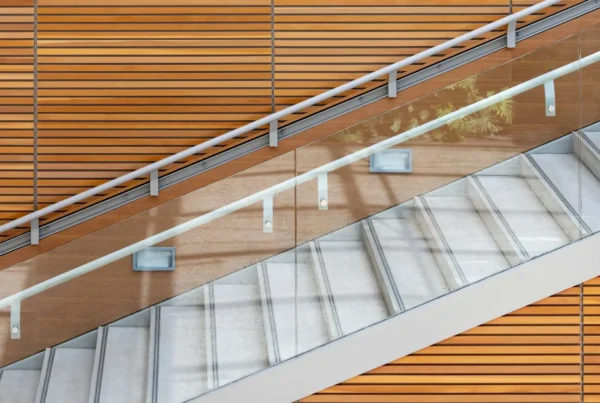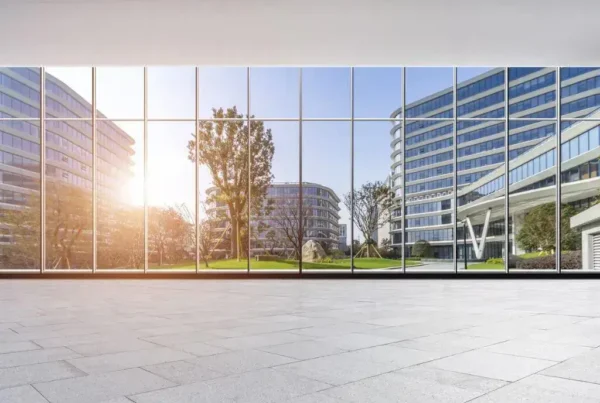A commercial access control system adds a valuable layer of security to any commercial property by preventing the unauthorized opening of doors and restricting entry to specific individuals.
Access control systems can be applied to exterior commercial entryways and doors as well as interior ones, providing a range of options for controlling the flow of people both into the building as a whole and to specific areas within.
If you’re considering implementing a commercial access control system for your business or facility, make sure you understand exactly how they work and ask yourself a few key questions to determine if you need one.
What Is a Commercial Access Control System?
While traditional access control methods like keys and locks suffice for residential use or small businesses, many commercial settings demand more sophisticated access control systems. These are typically electronic systems that lock doors automatically and require certain access credentials to unlock.
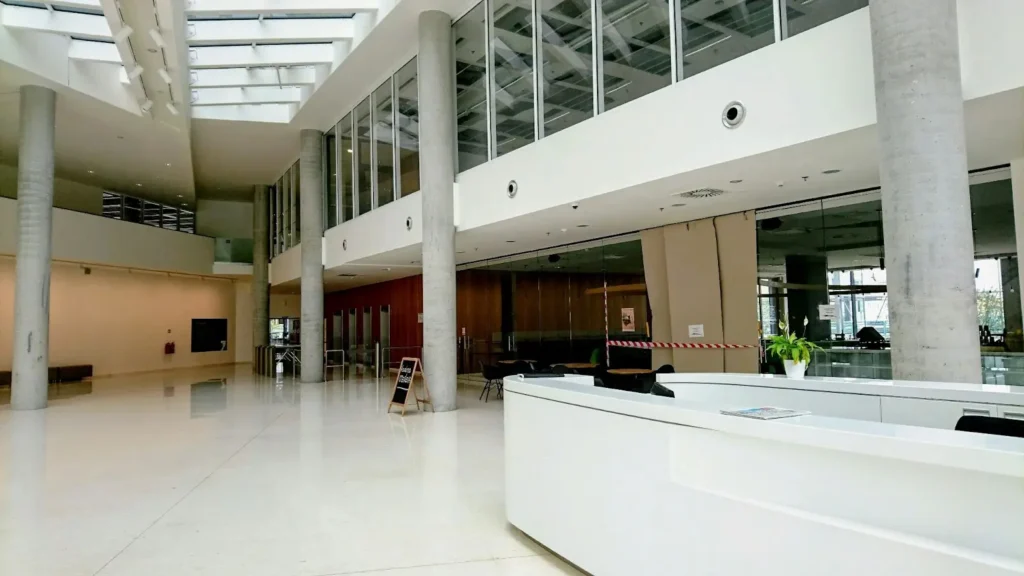
Common Types of Commercial Access Control:
- Keycard and fob-controlled locking mechanisms: Doors are equipped with readers that require key cards or fobs for access.
- PIN and passcode access control systems: Entry is granted upon entering a unique code into a reader.
- Smart locks and mobile access control: Mobile devices serve as access credentials.
- Biometric-controlled door locks: Individual biometric data, such as fingerprints or facial recognition, grants access.
- Remote access control: Doors are opened remotely by authorized personnel.
Benefits of Access Control Systems Beyond Security
While heightened security is the most obvious benefit of commercial access control, modern systems offer much more. For starters, they simplify facility management by eliminating the need for physical keys, which can be lost, stolen, or copied. Access credentials can be issued or revoked instantly, reducing administrative burden and improving efficiency.
Additionally, real-time access logs help monitor activity throughout the building, supporting audits and incident investigations. These systems can also be integrated with alarm systems, surveillance cameras, and emergency protocols, enabling automated lockdowns or controlled evacuations when needed.
As businesses grow or change, access control systems can scale to meet evolving needs. Whether expanding to multiple locations or adapting to hybrid work environments, flexible system configurations make it easy to adjust access levels, add new users, or integrate emerging technologies without starting from scratch.
Who Needs a Commercial Access Control System?
Any business that experiences high foot traffic faces an increased risk of unauthorized entry, making access control a critical security measure.
Whether it’s an office building, retail store, or healthcare facility, regulating who can enter and exit helps prevent security breaches and ensures that only authorized individuals have access to restricted areas.
For businesses handling valuable assets or sensitive data, access control provides an added layer of protection to secure areas. By implementing role-based restrictions, companies can ensure that only employees with the appropriate clearance can access confidential information, reducing the risk of internal and external threats.
While some businesses thrive on openness — think retail stores and hospitality venues — it's still essential to secure back offices, storage areas, and other sensitive spaces.
Traditional lock-and-key systems come with vulnerabilities, including lost keys and the potential for unauthorized duplication. Commercial access control solutions minimize these risks by offering more secure, trackable entry methods.
In short, almost any type of commercial facility can benefit from implementing at least some level of access control — it’s an easy win when it comes to boosting security!
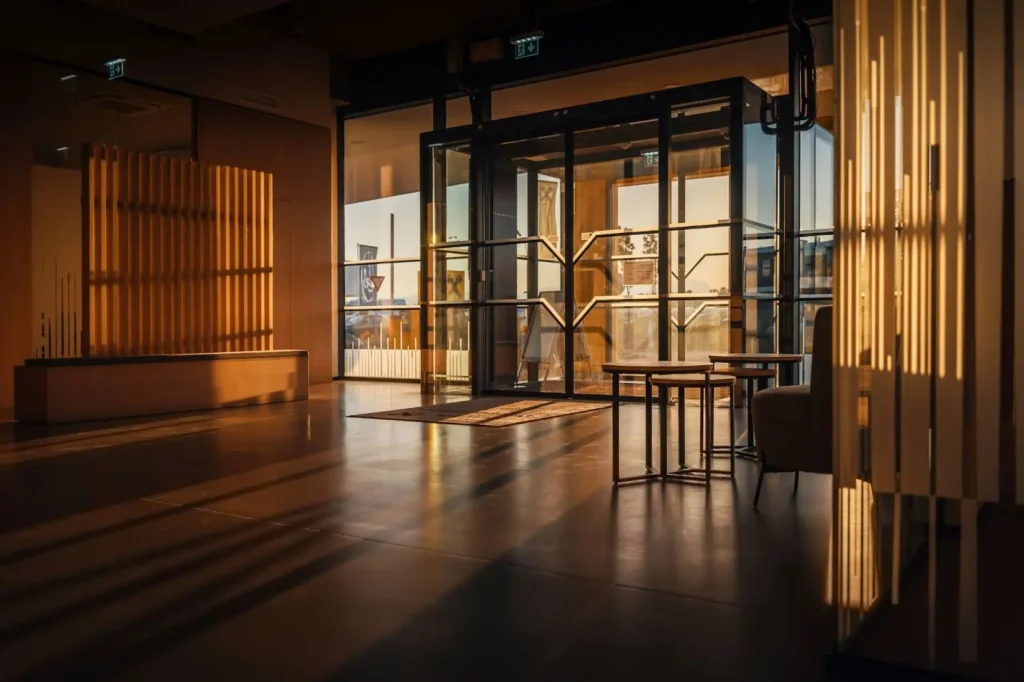
Ask Yourself These Questions To Determine If You Need Access Control:
- Is your property in a high-traffic area vulnerable to unauthorized visitors?
- Does your business house valuable assets or confidential information?
- Do you need to restrict certain areas to specific employees?
- Should certain sections remain inaccessible to the public?
- Are you concerned about the risks associated with lost keys or lock picking?
- Do you desire better control over visitor access?
If you answered yes to one or more of these questions, chances are high that you could benefit from installing access control systems in your commercial property.
Other Security Considerations for Commercial Buildings
While access control systems effectively regulate who can enter and exit a commercial property, they don’t eliminate all security risks.
One major vulnerability that business owners often overlook is the potential for intruders to bypass locked doors by breaking a window and using the emergency egress mechanism to open a door from the inside and gain access. Even the most advanced access control system cannot prevent an unauthorized individual from manually opening a door from the inside once they’ve gained entry through a compromised window.
To fully secure a commercial building, it’s essential to reinforce vulnerable windows with impact-resistant glass protection.
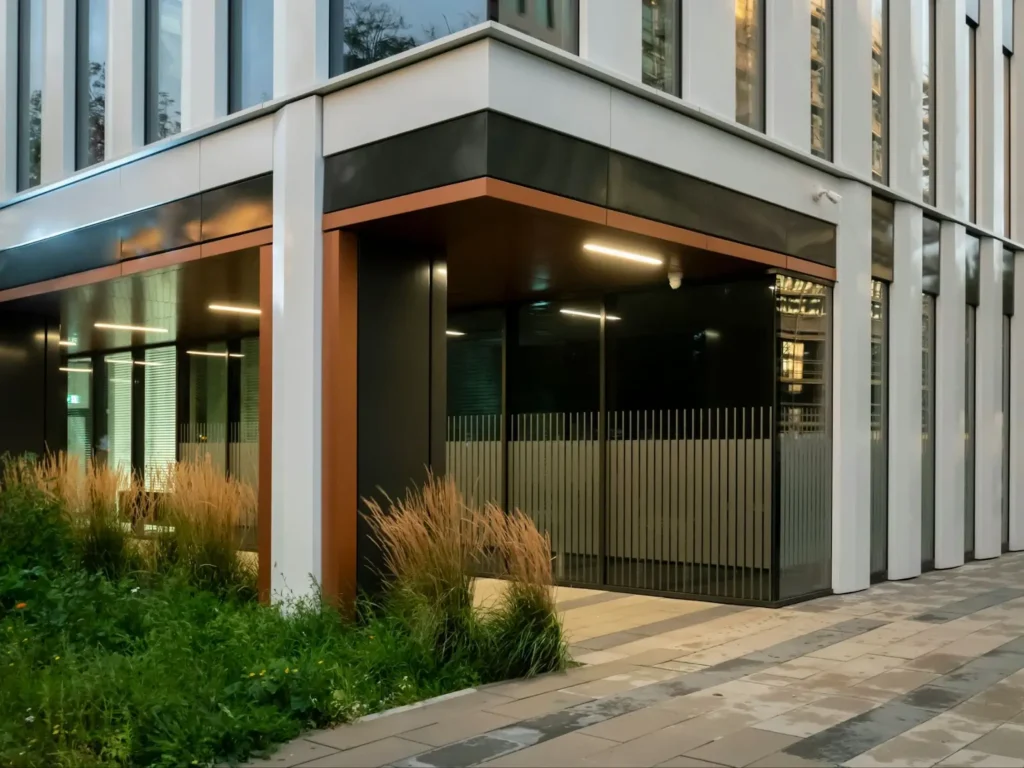
Security window films, laminated security glass, polycarbonate glazing, and other reinforced glazing solutions help prevent forced entry by making windows much harder to break. Depending on the specific solution implemented, it can deter, delay, or completely prevent would-be intruders from gaining access, buying valuable time for law enforcement or security personnel to respond.
Beyond preventing unauthorized access, impact-resistant glass protection also offers additional benefits, such as improved safety during natural disasters and increased protection against vandalism, rioting and looting, and other threats commonly faced by commercial facilities.
When combined with an access control system, these security measures create a comprehensive, multi-layered defense strategy that minimizes risks and greatly increases the overall safety of any commercial property.
Wrapping Up
A commercial access control system is an essential investment for any business or facility looking to boost security, protect valuable assets, and regulate entry. However, to create a truly secure environment, property owners should consider additional measures such as impact-resistant glass to protect against forced entry through windows.
By implementing a layered security approach that includes access control, reinforced glass, and other physical security upgrades, businesses can significantly reduce vulnerabilities and ensure a safer environment for employees, customers, and visitors alike.
At Campbell Glass and Films, we offer a full range of security glazing solutions to perfectly complement your access control. Contact us today for a free consultation!

